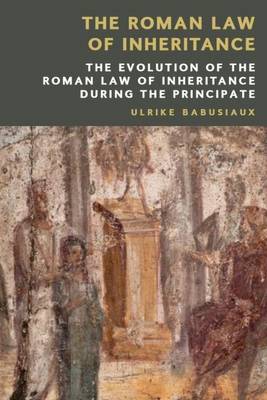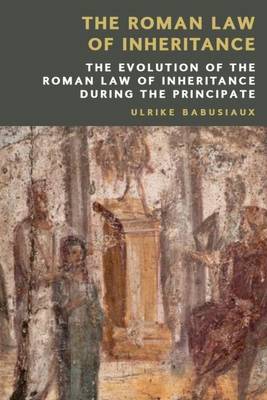
- Retrait gratuit dans votre magasin Club
- 7.000.000 titres dans notre catalogue
- Payer en toute sécurité
- Toujours un magasin près de chez vous
- Retrait gratuit dans votre magasin Club
- 7.000.0000 titres dans notre catalogue
- Payer en toute sécurité
- Toujours un magasin près de chez vous
The Roman Law of Inheritance
The Evolution of the Roman Law of Inheritance During the Principate
Ulrike Babusiaux
Livre relié | Anglais
201,45 €
+ 402 points
Description
Fritz Schulz once famously described the Roman law of inheritance as "labyrinthine" and it is deemed to be the most complex part of the Roman legal system. As Rome evolved from a city-state to an imperial power, the rules of inheritance often changed because of the economic importance of acquisition at death. These changes are reflected in the Corpus iuris civilis, despite the best efforts of the compilers of the Corpus to eliminate variations in the text in order to standardise the existing material for the purposes of their compilation.
The Roman Law of Inheritance gives the reader an insight into the content, structure and evolution of Roman inheritance law and provides an understanding of a fundamental part of Roman legal thought. In addition, it tackles the most difficult features of Roman law of inheritance, including the fideicommissa and the interpretation of wills which are explained against the background of historical stratification.Spécifications
Parties prenantes
- Auteur(s) :
- Traducteur(s):
- Editeur:
Contenu
- Nombre de pages :
- 328
- Langue:
- Anglais
Caractéristiques
- EAN:
- 9781399531658
- Date de parution :
- 31-08-24
- Format:
- Livre relié
- Format numérique:
- Genaaid
- Dimensions :
- 156 mm x 234 mm
- Poids :
- 635 g

Les avis
Nous publions uniquement les avis qui respectent les conditions requises. Consultez nos conditions pour les avis.






